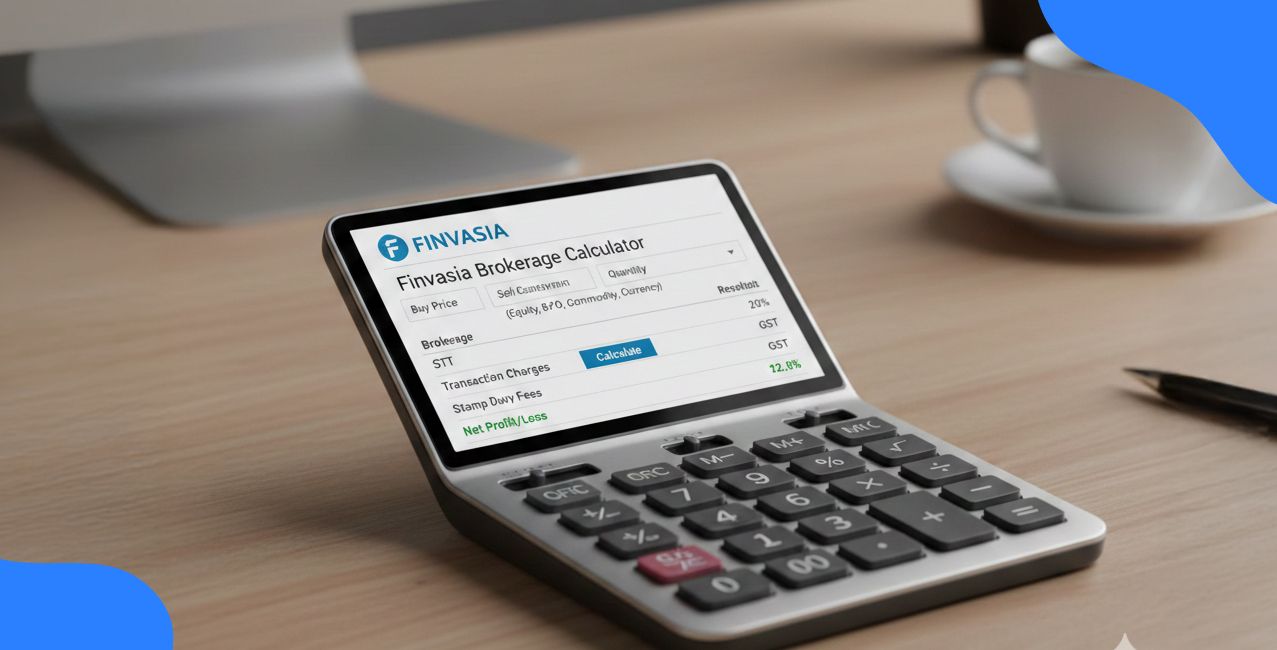How to Buy Unlisted Shares in India – Complete Guide

Check Your Loan Eligibility Now
By continuing, you agree to LoansJagat's Credit Report Terms of Use, Terms and Conditions, Privacy Policy, and authorize contact via Call, SMS, Email, or WhatsApp
Unlisted shares are equity shares of companies not traded on stock exchanges like the NSE or the BSE. Start-ups, pre-IPO companies, or private firms often hold these shares.
Take the example of Rajeev, a 38-year-old chartered accountant from Delhi. He was interested in buying shares of a promising fintech start-up that hadn't gone public yet. After researching, he approached a SEBI-registered unlisted share dealer and verified the company’s financials.
Rajeev decided to invest ₹75,000 in 150 shares priced at ₹500 each. The transaction was completed via bank transfer, and he received a share transfer form and a demat account confirmation.
Here’s a quick look at his investment:
Details | Rajeev’s Investment |
Company Name | FinTech Pvt Ltd |
Share Price | ₹500 |
Quantity Bought | 150 shares |
Total Investment | ₹75,000 |
Platform Used | SEBI-registered broker |
Holding Method | Demat account |
Rajeev’s example highlights how unlisted shares offer early access to growing businesses but with greater risk and lower liquidity.
Why Invest in Unlisted Shares?
Investing in unlisted shares can offer significant growth potential, especially if you identify promising companies early. However, due to limited marketability, it comes with higher risks.
Take the example of Meera, a 30-year-old marketing professional from Chennai. Two years ago, she invested ₹1,00,000 in a tech start-up’s unlisted shares at ₹200 per share.
The company has since grown rapidly, and although the shares aren’t yet listed, their estimated market value is now around ₹400 per share. Meera sees this as a chance to double her investment before the company goes public.
Read More - Benefits of Investing in Preference Shares
Here’s a snapshot of Meera’s investment:
Details | Value |
Initial Share Price | ₹200 |
Number of Shares Purchased | 500 |
Total Investment | ₹1,00,000 |
Current Estimated Price | ₹400 |
Current Market Value | ₹2,00,000 |
Potential Gain | ₹1,00,000 (100%) |
Meera’s story shows why investors seek unlisted shares: the opportunity for high returns by backing companies early in their growth phase.
Where to Find Unlisted Shares
Unlisted shares are unavailable on stock exchanges, so investors need to explore alternative sources to buy them. These include private transactions, company allotments, or through registered brokers specialising in unlisted securities.
Consider the example of Vikram, a 28-year-old entrepreneur from Mumbai. He wanted to invest in a private company whose shares had not been listed publicly. Vikram approached a SEBI-registered unlisted share broker and checked peer-to-peer trading platforms that facilitate unlisted share deals.
Additionally, he reached out directly to the company’s investor relations team to explore private placement options.
Here’s a summary of where Vikram found unlisted shares:
Source | Description | Vikram’s Experience |
SEBI-Registered Brokers | Licensed intermediaries for unlisted shares | Used a broker for verification |
Peer-to-Peer Trading Platforms | Online marketplaces for private share deals | Explored a popular platform |
Direct Company Allotment | Shares allotted directly by the company | Contacted the company’s IR team |
Friends/Family | Private transfers between individuals | Not applicable this time |
Vikram’s example shows that a combination of brokers, online platforms, and direct contacts helps in sourcing unlisted shares safely.
Who Can Buy Unlisted Shares?
Rajesh, a 35-year-old software engineer based in Bengaluru, has been investing in mutual funds and listed stocks for over five years. He recently heard about the potential high returns from unlisted shares, particularly in upcoming tech start-ups and pre-IPO companies.
However, Rajesh wondered: “Can someone like me buy unlisted shares, or is it only for the ultra-wealthy?”
The answer? Yes, individuals like Rajesh can invest in unlisted shares, provided they follow the proper process and understand the associated risks.
Who Is Eligible to Buy Unlisted Shares?
Investor Category | Eligibility | Example |
Retail Individual Investors | Anyone with a PAN and a demat account | Rajesh, a salaried IT professional |
High Net-Worth Individuals (HNIs) | Typically individuals investing ₹2,00,000 or more per transaction | Rina, a businesswoman with surplus capital |
Employees (via ESOPs) | Employees granted shares as part of compensation | Mehul, a startup employee |
Angel Investors / VCs | Accredited or sophisticated investors investing in early-stage firms | Avinash, an angel investor in tech startups |
Private Investment Firms / LLPs | Registered firms investing for long-term growth | Apex Holdings LLP |
Step-by-Step Process to Buy Unlisted Shares
Also Read - Should You Invest in IPOs
Buying unlisted shares is not as straightforward as purchasing listed stocks on the stock exchange, but it is quite feasible if you follow the right steps. Here's how to go about it:
1. Identify the Company
Start by selecting the company whose unlisted shares you wish to purchase. These could be:
- Pre-IPO companies (e.g., Reliance Retail, Tata Technologies)
- Start-ups with promising growth
- Subsidiaries of listed companies
Do thorough research into the company’s fundamentals, performance, and prospects.
2. Find a Verified Dealer or Platform
You cannot buy unlisted shares directly on stock exchanges. Instead, you must:
- Approach authorised intermediaries or brokers who deal in unlisted equities
- Use reputable online platforms that specialise in private investments
- Contact the company directly (especially in the case of start-ups or ESOP sales)
Always verify the credibility of the seller before proceeding.
3. Confirm Share Availability and Pricing
Unlisted shares do not have a market-driven live price. Therefore, it’s important to:
- Negotiate or confirm the share price
- Check the last traded price (if available)
- Understand the premium or discount being offered
4. Complete KYC and Documentation
Before the transaction, you’ll need to:
- Submit your PAN, Aadhaar, and bank account details
- Sign a Client Agreement with the intermediary (if applicable)
- Ensure your demat account is active
This ensures compliance with SEBI regulations and smooth processing.
5. Make the Payment
Once all documents are verified:
- Transfer the agreed amount to the seller’s bank account
- Ensure you retain a copy of the payment receipt
Some platforms use escrow accounts to ensure safety on both sides.
6. Receive Shares in Your Demat Account
After payment confirmation:
- The shares are transferred to your demat account
- This process usually takes 2 to 5 working days
receive an email and SMS confirmation from your depository (NSDL/CDSL).
7. Keep Track of Corporate Actions and Listing Plans
After purchasing, it’s important to:
- Monitor company announcements, dividends, or bonus issues
- Stay updated on any plans for public listing (IPO), which may affect your exit options
Conclusion
Investing in unlisted shares offers a unique opportunity to tap into the growth potential of promising companies before they go public. While the process may seem less transparent than buying listed equities, with the right due diligence, a verified broker, and a clear understanding of the risks involved, even retail investors can successfully participate.
Whether you're an experienced investor looking to diversify your portfolio or a first-time buyer intrigued by pre-IPO opportunities, the key lies in researching thoroughly, ensuring regulatory compliance, and approaching each transaction with caution and clarity.
FAQ’s
1. Can anyone buy unlisted shares?
Yes, any individual with a PAN and a demat account can buy, provided they follow proper KYC procedures and use trusted intermediaries.
2. Where can I find unlisted shares to buy?
You can buy them through authorised brokers, online platforms, or directly from employees via ESOPs.
3. Are unlisted shares safe to invest in?
They carry a higher risk due to low liquidity and limited regulation. Always research thoroughly before investing.
How to Guides – Investing, Trading & Wealth Building | ||
About the author

LoansJagat Team
Contributor‘Simplify Finance for Everyone.’ This is the common goal of our team, as we try to explain any topic with relatable examples. From personal to business finance, managing EMIs to becoming debt-free, we do extensive research on each and every parameter, so you don’t have to. Scroll up and have a look at what 15+ years of experience in the BFSI sector looks like.
Subscribe Now
Related Blog Post
Recent Blogs
All Topics
Contents
Quick Apply Loan
Consolidate your debts into one easy EMI.
Takes less than 2 minutes. No paperwork.
10 Lakhs+
Trusted Customers
2000 Cr+
Loans Disbursed
4.7/5
Google Reviews
20+
Banks & NBFCs Offers
Other services mentioned in this article








